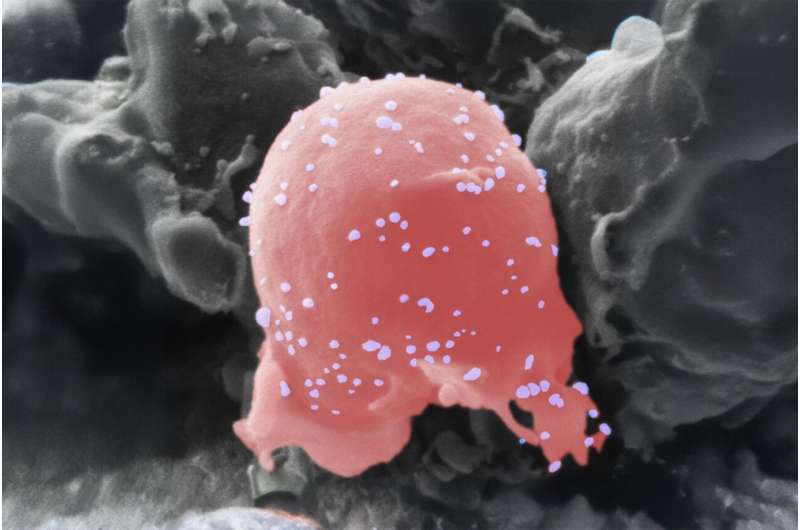
About 1 million people in the United States are living with multiple sclerosis (MS), a chronic autoimmune disease that inflames the nervous system and disrupts communication between the brain and body. Researchers at the University of Illinois at Chicago have announced a promising new method for delivering anti-inflammatory drugs directly to the central nervous system, which could significantly alleviate symptoms associated with MS and other autoimmune disorders. Their findings were published on November 7, 2025, in the journal Science Advances.
Current treatments for MS often struggle to penetrate the blood-brain barrier, which limits the effectiveness of many anti-inflammatory drugs. According to lead investigator Zongmin Zhao, an assistant professor in the Retzky College of Pharmacy and a member of the University of Illinois Cancer Center, this barrier effectively prevents many medications from reaching the brain. “If drugs can get through, they do alleviate some symptoms but are usually not strong enough to provide a complete cure,” Zhao explained.
To overcome this challenge, Zhao’s laboratory has developed a method that utilizes immune-regulating cells known as myeloid-derived suppressor cells (MDSCs). These cells are enhanced with nano-sized “packs” filled with rapamycin, an anti-inflammatory agent. The design allows these cells to act as carriers, targeting inflamed areas of the central nervous system and delivering the therapeutic drug where it is needed most.
Breakthrough Method Shows Promise
In their experiments, the researchers found that this innovative therapy could effectively reduce disease progression and improve motor function in mice models of MS. The approach, termed CNS Immune Targeting Enabled by MDSCs (CITED), reprograms the nervous system’s immune response, allowing for more effective treatment of inflammation.
Co-author Luyu Zhang, a Ph.D. student in Zhao’s lab, stated, “The potential of this work extends well beyond multiple sclerosis. This method may be a promising strategy for targeted immunotherapy in MS and other autoimmune disorders.” The implications of this research could potentially reach other challenging conditions, such as heart disease or arthritis, which also involve complex immune responses.
The research team, which includes additional contributors such as Endong Zhang, Hanan Algarni, and Dr. Jalees Rehman, has dedicated the past three years to refining their approach to MS treatment. Their findings not only offer hope for millions suffering from this debilitating condition but also pave the way for future advancements in immunotherapy.
As the fight against autoimmune diseases continues, this breakthrough in cell therapy underscores the importance of innovative approaches to treatment. With further research and development, the CITED method might soon play a crucial role in transforming care for patients with multiple sclerosis and beyond.
More information on the study can be found in the publication: Endong Zhang et al, “Nanoparticle-boosted myeloid-derived suppressor cell therapy for immune reprogramming in multiple sclerosis,” published in Science Advances, DOI: 10.1126/sciadv.ady4135.






